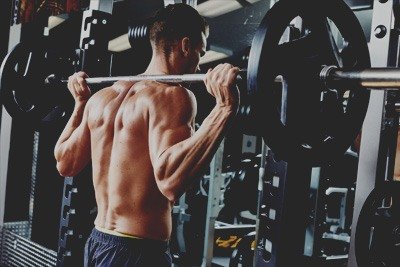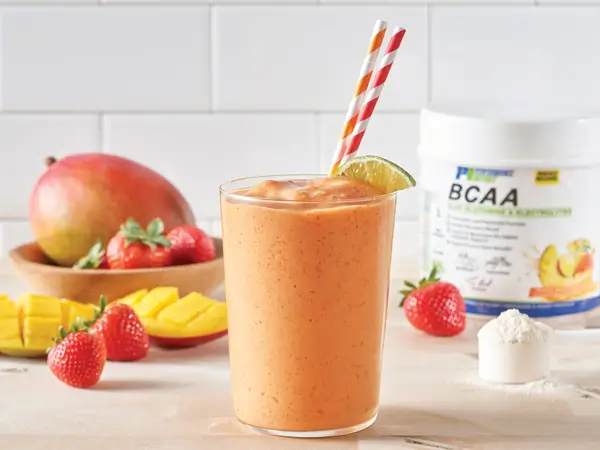Blog
Pre vs. Post-Workout Nutrition: What Does Science Say?

For decades, fitness enthusiasts have debated the importance of pre- and post-workout nutrition. Some swear by a protein-packed shake immediately after their last rep, while others prioritize a carb-heavy meal before hitting the gym. But what does the scientific evidence actually say? Is one more critical than the other, or do both play equally important roles in achieving your fitness goals? Understanding the science behind nutrient timing can help you optimize your performance, enhance recovery, and make the most of your efforts in the gym. This isn’t just bro-science or anecdotal advice; it’s about how your body utilizes nutrients differently depending on when you provide them. From energy metabolism to muscle protein synthesis, the timing of your meals can influence everything from how you feel during a workout to how quickly you bounce back afterward. Let’s dive into the research and separate fact from fiction to help you design a nutrition strategy that works in harmony with your body’s physiological processes.
The Science of Pre-Workout Nutrition
Pre-workout nutrition is fundamentally about fueling your body for the upcoming physical demands. Think of it as priming an engine before a race. The primary goals are to maximize energy levels, improve performance, preserve muscle mass, and delay fatigue. Scientifically, the focus here is on providing adequate carbohydrates and a moderate amount of protein, while typically keeping fat and fiber low to avoid gastrointestinal discomfort during exercise. Carbohydrates are key because they replenish glycogen stores—the body’s preferred source of energy during high-intensity activities. Studies have shown that consuming carbs before exercise can increase glycogen availability, leading to improved endurance and strength output. For example, a meta-analysis published in the Journal of the International Society of Sports Nutrition concluded that pre-exercise carbohydrate intake enhances performance in activities lasting longer than 60 minutes. But what about shorter, more intense workouts? Even here, carbs can provide a quick source of energy, especially if you’re training in a fasted state or after a long day without food.
Protein before a workout is another area of interest. While carbs take center stage for energy, protein pre-exercise can kickstart the process of muscle protein synthesis (MPS) and reduce muscle breakdown during the activity. A study in the American Journal of Physiology found that consuming protein before resistance training led to a more positive muscle protein balance compared to placebo groups. This doesn’t mean you need a large meal; even a small amount of protein—such as that found in a scoop of whey protein or a serving of Greek yogurt—can be beneficial. The timing of your pre-workout meal also matters. The general recommendation is to consume a balanced meal containing carbs and protein about 1–3 hours before exercise, depending on the size of the meal and your individual tolerance. This window allows for partial digestion and absorption, ensuring nutrients are available when you need them without causing discomfort. For those who train early in the morning or prefer fasted workouts, a smaller snack 30–60 minutes prior—like a banana or a handful of dates—can still provide a quick energy boost without overwhelming your system.
The Science of Post-Workout Nutrition
Post-workout nutrition, often called “the anabolic window,” has long been emphasized as a critical period for recovery. The theory suggests that consuming nutrients within 30–60 minutes after exercise maximizes muscle repair, replenishes glycogen stores, and enhances adaptation. But how much of this is supported by science? While the concept of an “anabolic window” has been somewhat exaggerated in popular fitness culture, there is solid evidence that post-workout nutrition plays a significant role in recovery. After exercise, your muscles are primed to absorb nutrients—a state often referred to as insulin sensitivity. This means that consuming carbs and protein during this period can efficiently stimulate muscle protein synthesis and restore glycogen levels. A review in the Journal of the International Society of Sports Nutrition notes that while the window may be wider than once thought (lasting up to several hours post-exercise), sooner is generally better for optimal results.
Protein intake after exercise is particularly crucial. Resistance and endurance training create microtears in muscle fibers, and providing amino acids from protein helps repair and rebuild these fibers, making them stronger over time. Research consistently shows that consuming 20–40 grams of protein after a workout significantly boosts MPS. For example, a study in Medicine & Science in Sports & Exercise demonstrated that post-exercise protein consumption accelerated recovery and reduced muscle soreness compared to placebo. Carbs are equally important post-workout, especially if you’ve engaged in prolonged or high-intensity exercise. Glycogen stores become depleted during training, and consuming carbohydrates helps restock these stores, preparing you for your next session. The combination of carbs and protein appears synergistic: carbs stimulate insulin release, which enhances amino acid uptake into muscles, further promoting repair and growth. While whole foods can certainly work, many athletes opt for convenient options like protein shakes or recovery drinks immediately after training to ensure rapid digestion and absorption.
Pre vs. Post: Which Is More Important?
The debate over whether pre- or post-workout nutrition is more important often misses the point: both are valuable, but their importance can depend on your goals, the type of exercise, and your overall diet. From a scientific perspective, if you had to choose one, the evidence suggests that post-workout nutrition might have a slight edge for muscle growth and recovery. This is because the post-exercise period is when your body is most efficient at utilizing nutrients for repair and replenishment. However, this doesn’t mean pre-workout nutrition should be neglected. For endurance athletes or those engaging in long or intense training sessions, pre-workout fueling can make the difference between hitting a personal best and hitting a wall. In fact, for performance-oriented goals, pre-workout nutrition may be even more critical. A study in the Journal of Strength and Conditioning Research found that athletes who consumed carbs before exercise performed significantly better in endurance tasks than those who didn’t.
The truth is, the two are interconnected. A well-fueled workout (pre-nutrition) often leads to a more productive session, which in turn creates a greater need for recovery (post-nutrition). Think of it as a cycle: pre-workout nutrition sets the stage for performance, and post-workout nutrition capitalizes on the work you’ve done. Your overall daily nutrition intake ultimately matters more than obsessing over the timing of a single meal. If you’re consuming adequate protein, carbs, and calories throughout the day, the urgency around pre- and post-workout meals diminishes. That said, for athletes training multiple times a day or individuals with specific body composition goals, fine-tuning nutrient timing can provide an additional advantage. The key is to experiment and find what works best for your body. Some people thrive with a pre-workout meal, while others feel better training fasted and focusing on recovery afterward. Listen to your body, and let the science guide you rather than dictate rigid rules.
Practical Applications and Takeaways
So, what should you actually do? Based on the science, here’s a practical approach to pre- and post-workout nutrition. For pre-workout, aim for a meal or snack 1–3 hours before exercise that includes carbs for energy and a moderate amount of protein to support MPS. Examples include oatmeal with berries, a banana with almond butter, or a smoothie made with fruit and protein powder. If you’re short on time, a piece of fruit or a small energy bar 30 minutes before can suffice. For post-workout, prioritize protein and carbs within 1–2 hours after training. A ratio of 3:1 or 4:1 carbs to protein is often recommended for endurance athletes, while those focused on strength training might emphasize protein with a side of carbs. Great options include a protein shake with a banana, chicken with sweet potatoes, or Greek yogurt with honey and granola. Remember, hydration is also crucial before, during, and after exercise—don’t overlook electrolytes, especially if you sweat heavily.
In the end, the science shows that both pre- and post-workout nutrition play valuable roles in optimizing performance and recovery. Rather than viewing them as competitors, consider them complementary components of a holistic fitness nutrition strategy. Pay attention to your body’s signals, be consistent with your overall diet, and use nutrient timing as a tool to enhance—not complicate—your fitness journey. Whether you’re a competitive athlete or a weekend warrior, understanding the why behind your nutrition choices can empower you to train smarter, recover faster, and achieve your goals more efficiently.








